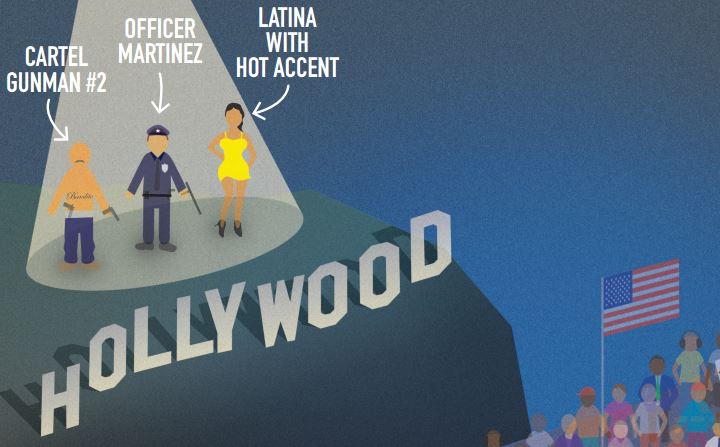Published: 11 July 2014
Country: US
 While the Latino population in the United States has stunningly grown in the last 50 years, their consumer power has increased. Yet, their presence in the media remains weak and could also be said to be decreasing.
While the Latino population in the United States has stunningly grown in the last 50 years, their consumer power has increased. Yet, their presence in the media remains weak and could also be said to be decreasing.

The US media has not reflected the increase of Latinos in the country, so the lack of Latino characters continues to be latent in films, series and TV shows, a new research by Columbia University, The Latino Media Gap: A Report on the State of Latinos in U.S. Media, finds.
In contrast to African Americans, Latinos are generally viewed as new arrivals and foreigners. Their inclusion in media institutions or series’ casts is not perceived to be a common goal. The report conducted by the Center for the Study of Ethnicity and Race (CSER) at Columbia University concludes that, while Latino-male presence as lead host or characters in TV and films has decreased, the percentage of women and Afro-Latino presence grows.
Nevertheless, it does not mean that there is a better representation of the community: on the one hand, most of the roles played by Latinas in the top ten movies were as animated or fantasy characters and, on the other, long term successful actresses, such as Cameron Díaz, have been rarely identified as a part of the Latino community.
Moreover, Latino indigenous presence is still narrow in the US media. Behind the scene, the landscape is not better: industry executives, writers or creative directors are rarely Latinos.
Yet, images and stereotypes generated by media about the Latino population do not help to gain a fairer representation. On television and in movies, Latinos continue to be represented through old stereotypes, primarily as criminals, law enforcers, cheap labour workers or sexual objects.
This also occurs in the news where, besides the limited amount of news which focused on Latino communities, the Latino image is linked to law-breaking. If Latino participation is limited in entertainment, it is nearly non-existent or unfairly represented in the news, where they are mostly being linked to crimes.
However, some positive remarks can be made. Advocacy among the Latino audience is very active. Latino consumers have already showed their strength, especially during the campaign against the TV programme Lou Dobbs Tonight, whose anti-immigration speech caused the birth of the Basta Dobbs campaign (Stop, Dobbs). In the changes of the last few years, advocacy has been instrumental and it continues to be an essential to diversify the media, mainly through the internet and digital tools.
Furthermore, Latino presence among new communication tools is in crescendo. As they continue to be marginalised in traditional media, their creativity drifts to the Internet and new technologies, where they have a notable presence. Some trailblazers, as the multi-platform storyteller Jeff Gómez, are good examples.